FACT 1: Bamboo is grass, not a tree
Bamboo is actually a member of the grass family, which explains its speed of growth. Like all plants, bamboo starts out like a seed. The seed sprouts grow roots and develop into a rootstalk - also known as a rhizome. As the rhizome grows, it produces more roots and eventually, it forms a bud. This bud can either develop into a shoot or another rhizome. Rhizomes are important because their growth pattern determines how the overall colony grows and spreads. Depending on the type of bamboo, rhizomes can grow in one of two ways, vertically or horizontally.
A fully grown shoot is called a culm and is usually what you think of when we say bamboo. Culms replenish their leaves every sprouting season as new bamboo shoots grow around them. This fast replenishment is what makes bamboo a great renewable resource.
Did you know that some bamboo species can reach over 30 meters in height, with a bamboo shoot growing up to 1 meter per day? As a grass, bamboo can fully mature in three to five years, making it one of the fastest-growing plants on earth.
FACT 2: Bamboo is naturally organic
Unlike most crops, bamboo requires no agricultural chemicals to thrive. No pesticides, fertilisers or irrigation is required to enhance bamboo’s growth. Bamboo’s natural pesticides are in the actual plant matter. This means that bamboo doesn’t require chemical treatment as part of the growing phase. Boody bamboo is grown in the rainy Sichuan province of China and relies solely on rainfall to grow.

FACT 3: Bamboo absorbs greenhouse gases
Bamboo absorbs carbon dioxide and releases 35% more oxygen into the atmosphere than the equivalent area of trees. Bamboo is a crucial element in the balance of oxygen and carbon dioxide in the atmosphere. This makes bamboo excellent for absorbing greenhouse gases and producing clean, fresh oxygen. Ahh!
FACT 4: Bamboo fabric is antibacterial and hypoallergenic
Bamboo contains an anti-bacterial and anti-fungal bio-agent which is retained through the process of fabrication and after washing. This property also makes Boody garments odour-resistant. The structure of the bamboo fibres contains micro-gaps, which provide ventilation and evaporates moisture that causes bacteria to multiply. Did you know that the smooth bamboo strands do not snag against each other, and won't cause a blockage in the gaps of the weave?
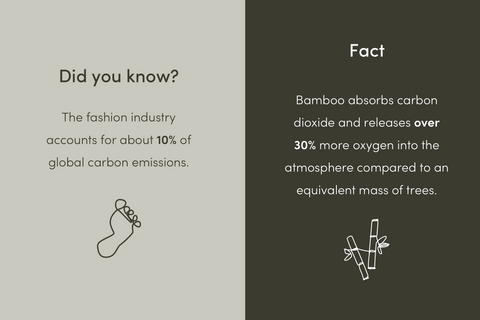
FACT 5: Bamboo fabric is moisture absorbent
Bamboo fabric wicks moisture away from the skin to keep you dry and comfortable. The evaporation, which naturally occurs, drives moisture to continually travel towards the surfaces of each bamboo fibre. It wicks moisture away from the skin and keeps you cool no matter how much you sweat! Bamboo fabric is also self-regulating, which means it also provides good thermal protection in colder months.
FACT 6: Bamboo consumes less water
The fashion industry is the world's 2nd largest consumer of water. The process of growing bamboo versus growing cotton is much less water-intensive. Bamboo requires one-third the amount of water to grow than is necessary for cotton. Bamboo is self-sufficient and requires no irrigation, using water much more efficiently and relies solely on rainfall to grow. All water used in the production process is recycled and reused.

FACT 7: Bamboo fabric is anti-static and UV protective
Bamboo fibres feature natural UV resistance. As a result, All Boody garments are made from a UPF50+ rated fabric that will protect you from ultraviolet (UV) damage. Bamboo fibre smoothly falls into place in its weave, leaving gaps open for air to flow freely. The bamboo fabric possesses anti-static properties that prevent the garment from clinging uncomfortably to your skin. No static-cling is produced when washed or dried.
FACT 8: Bamboo fabric is breathable and thermoregulating
Bamboo fibre is naturally breathable because of its structure. The gaps in its weave allow air to flow freely through, naturally regulating the temperature. The weave regulates the temperature between your body and the air, making you feel warmer when it’s cold. This level of breathability and thermoregulation is not possible with other fabrics including cotton and synthetic fabrics.
Did you know that when planted, bamboo can cool down the surrounding air by up to 8 degrees in summer? Natural air-conditioner!
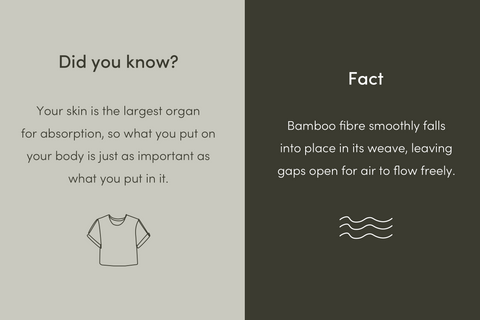
FACT 9: Bamboo is softer
Although bamboo is used as a building material and has a higher compressive strength than wood, brick, or concrete, it can actually be woven into one of the world’s softest fabrics. Viscose from bamboo can be compared to some of the most luxurious fabrics like silk! Bamboo fabric is extremely durable yet still has a natural soft and silky feel to the touch. Bamboo fibres are smooth and round and contain a natural ingredient called pectin that helps enhance its soft texture. The fabric drapes elegantly without wrinkling.
FACT 10: Bamboo is diverse and versatile
Bamboo is the fastest growing and most versatile plant in the world, with some species of bamboo shooting up as much as one metre a day. Bamboo is a popular material and has had hugely diverse uses over the last 5,000 years, from bows and arrows to kitchenware, toilet paper and apparel. Bamboo has more than 2,000 uses around the world.

Organically grown bamboo is highly breathable, comfy and soft; making it perfect for garments that sit close to the skin like underwear, socks and everyday basics. Boody has always championed bamboo, it’s our choice for comfort, health and sustainability.
Sources
- https://bamboobotanicals.ca/html/about-bamboo/bamboo-facts.html
- https://www.environment.gov.au/protection/waste/product-stewardship/textile-waste-roundtable
- https://www.bbc.com/future/article/20200310-sustainable-fashion-how-to-buy-clothes-good-for-the-climate
- https://www.bbc.com/future/article/20200710-why-clothes-are-so-hard-to-recycle
- https://unece.org/forestry/press/un-alliance-aims-put-fashion-path-sustainability
You may also like
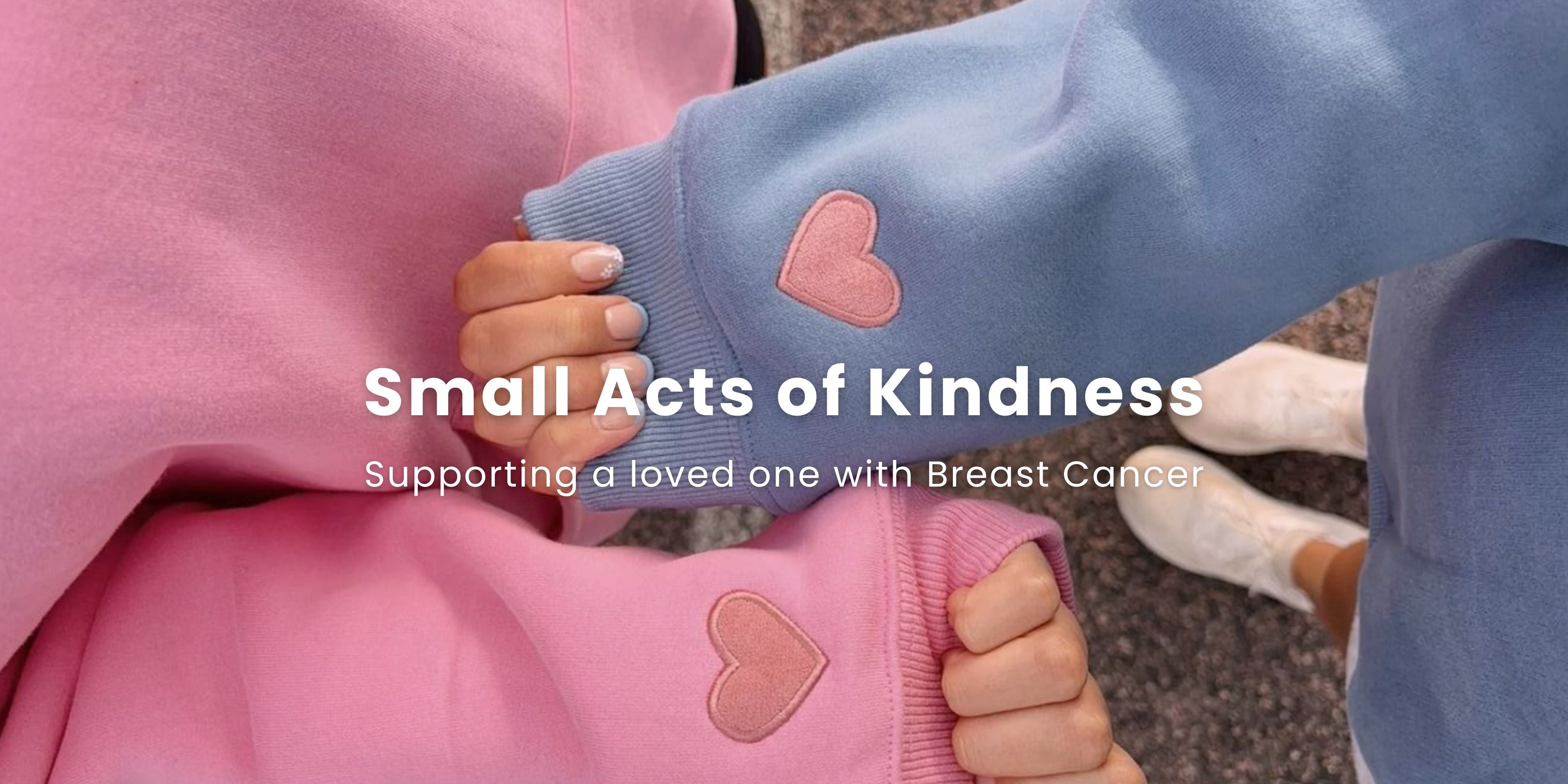
When a loved one is diagnosed with breast cancer, it can be hard to know what to do or say. You want to help, but the journey is so personal that it’s natural to feel unsure. The truth is support d...
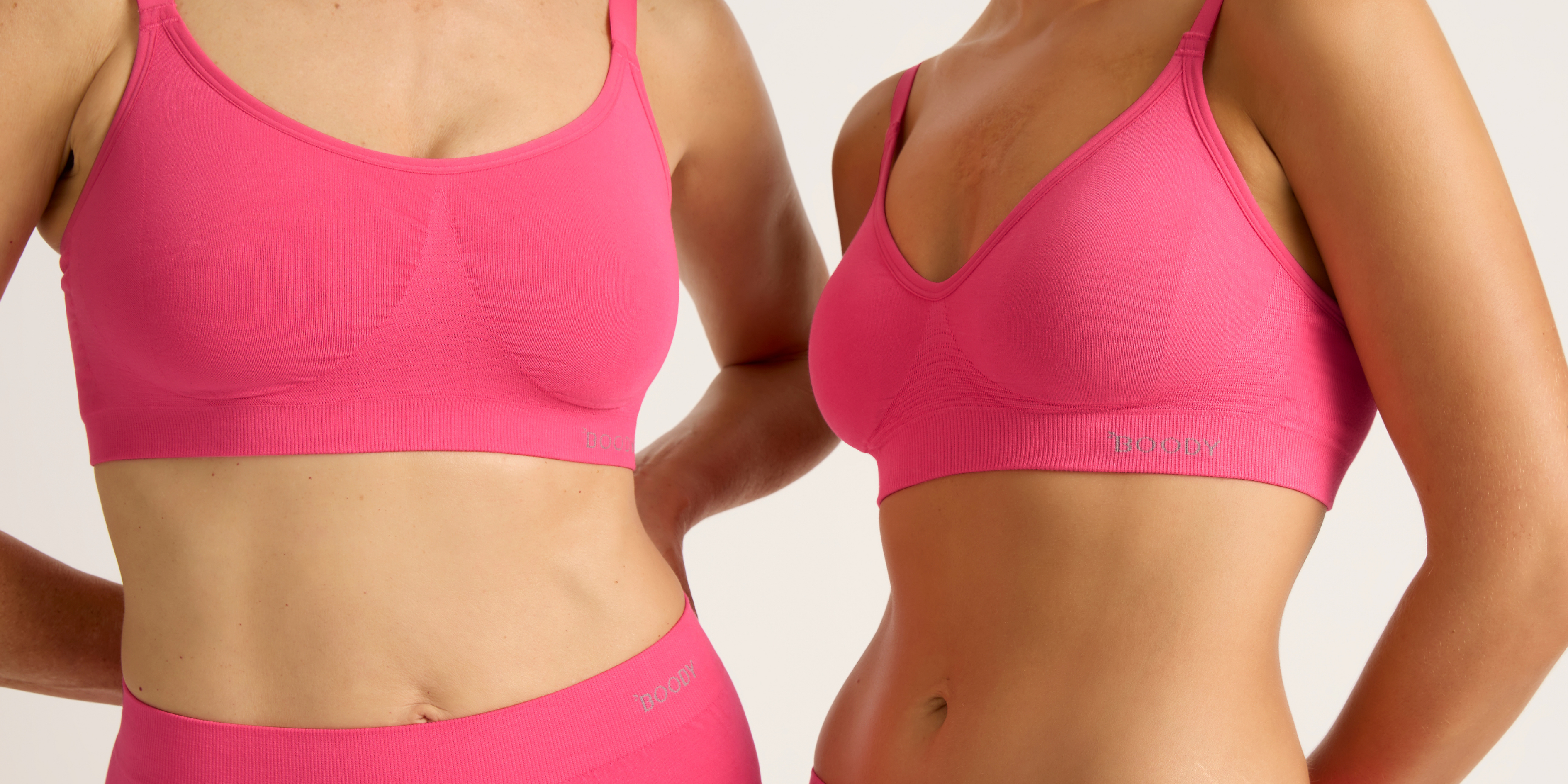
October is Breast Cancer Awareness Month When you think about breast cancer recovery, what comes to mind first? For many, it’s the treatments, the check-ups, or the support of loved ones. But...
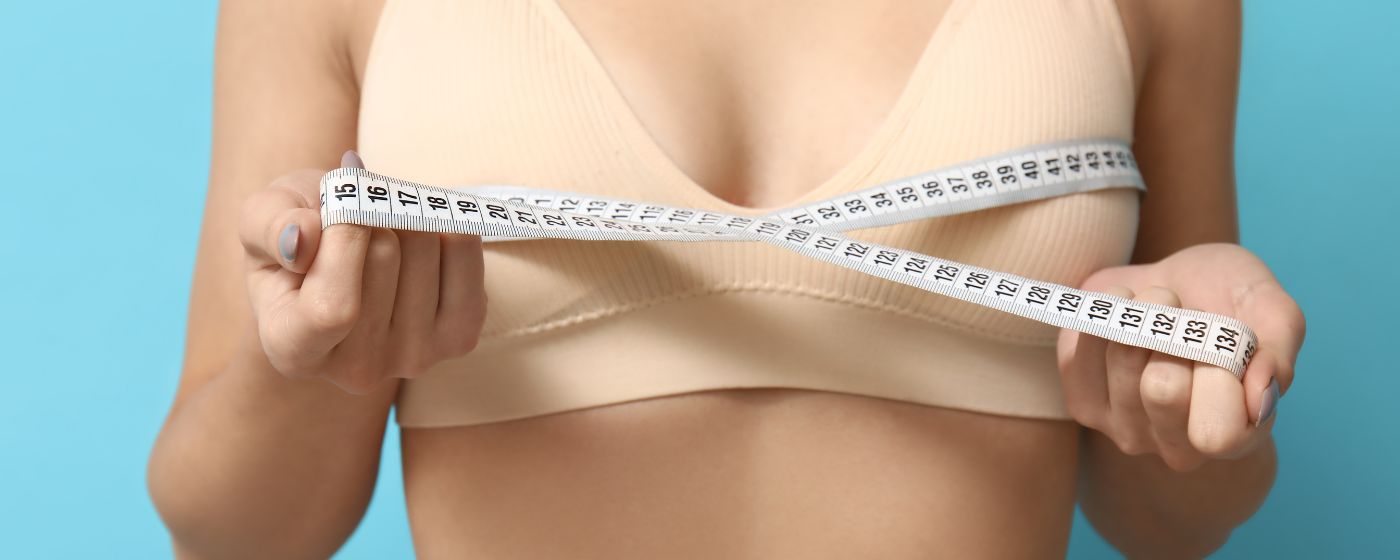
Whether you’re buying your first or five-hundredth bra, finding the right size can be a pain. Too tight, and you’ll face itchy straps and poking wires. Too loose, and you’ll have zero support and f...
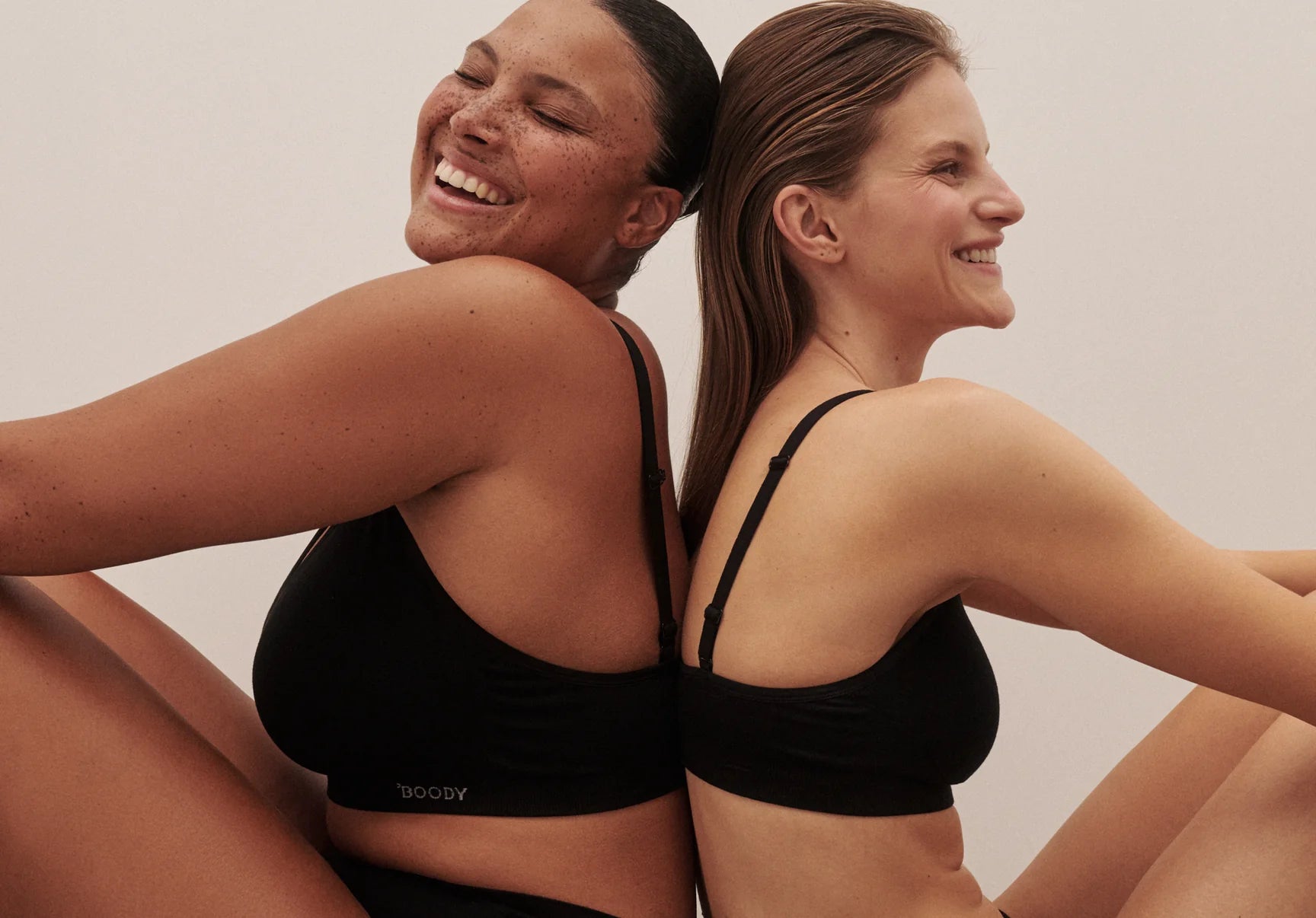
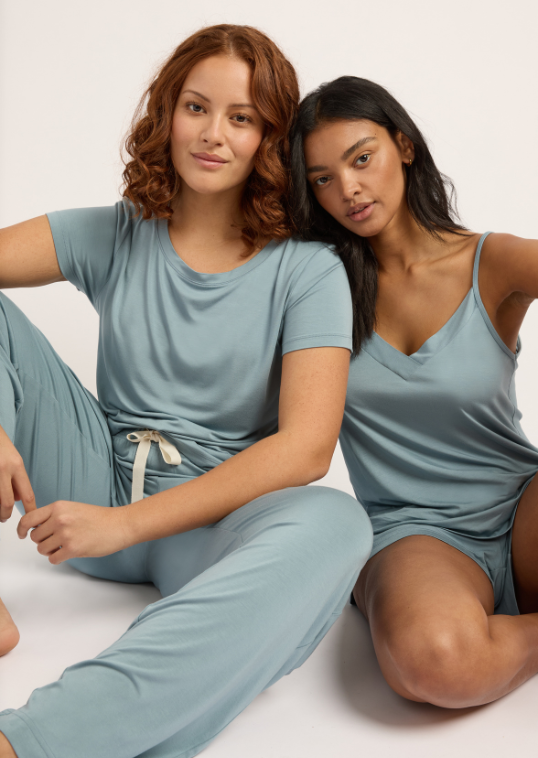
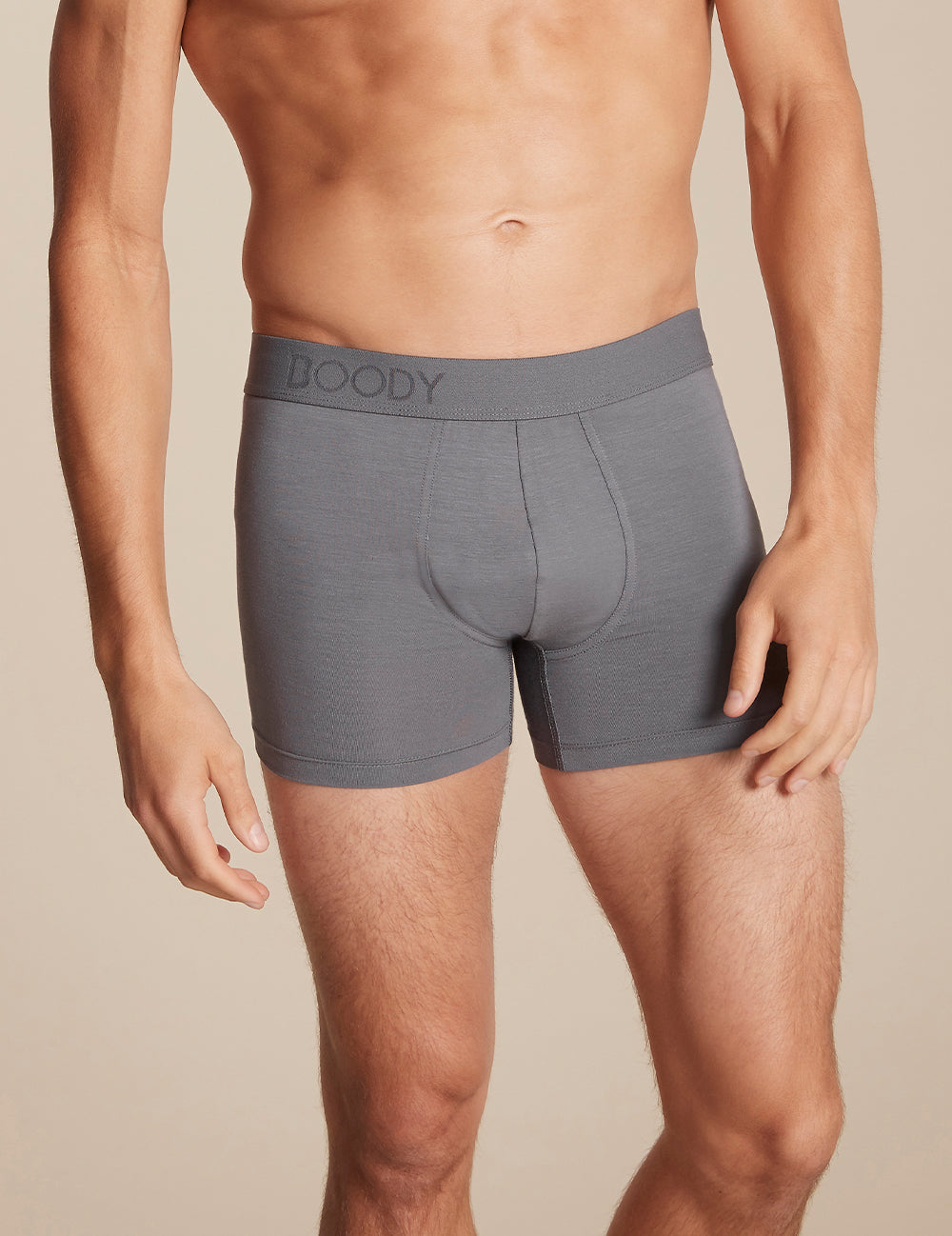
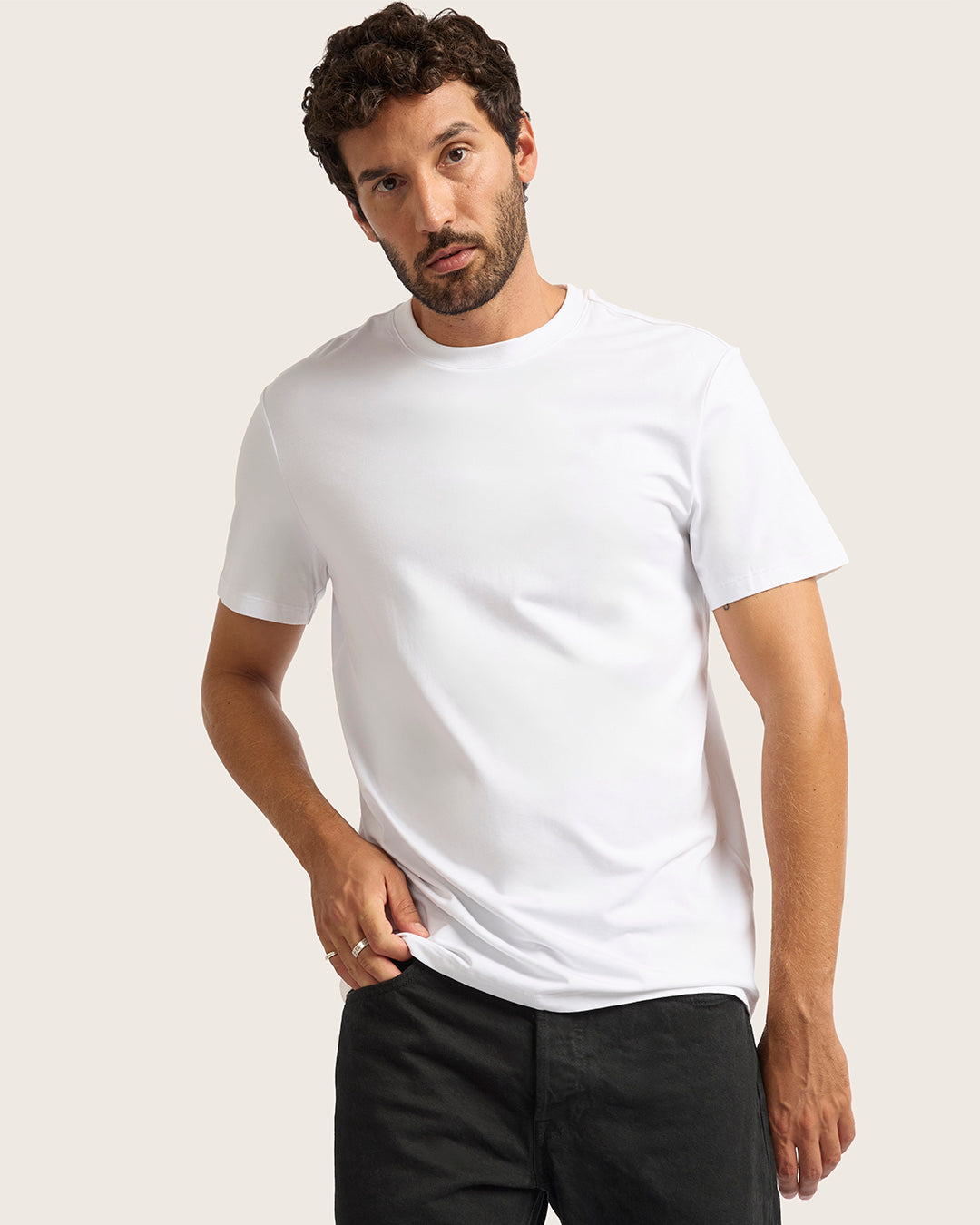
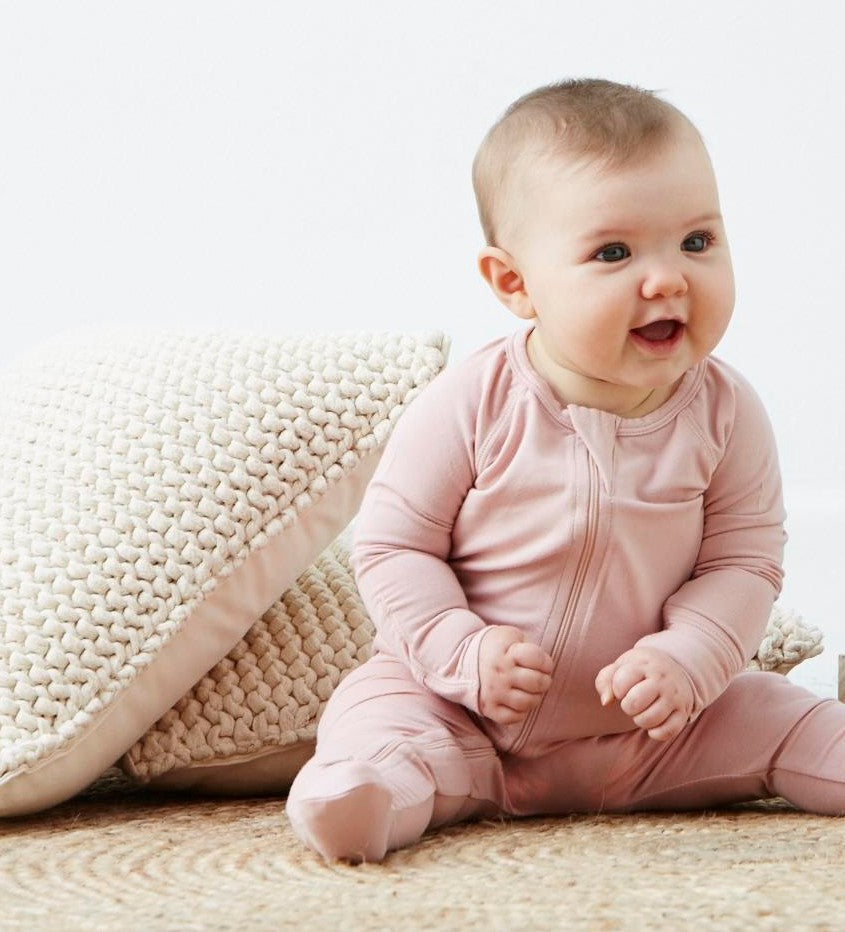
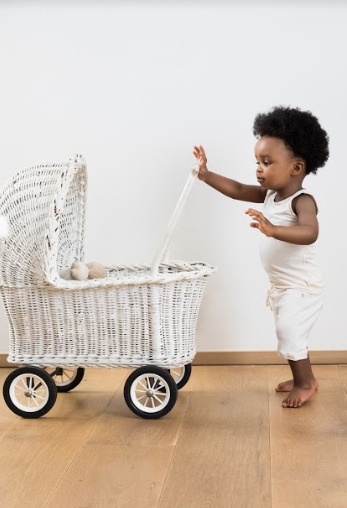
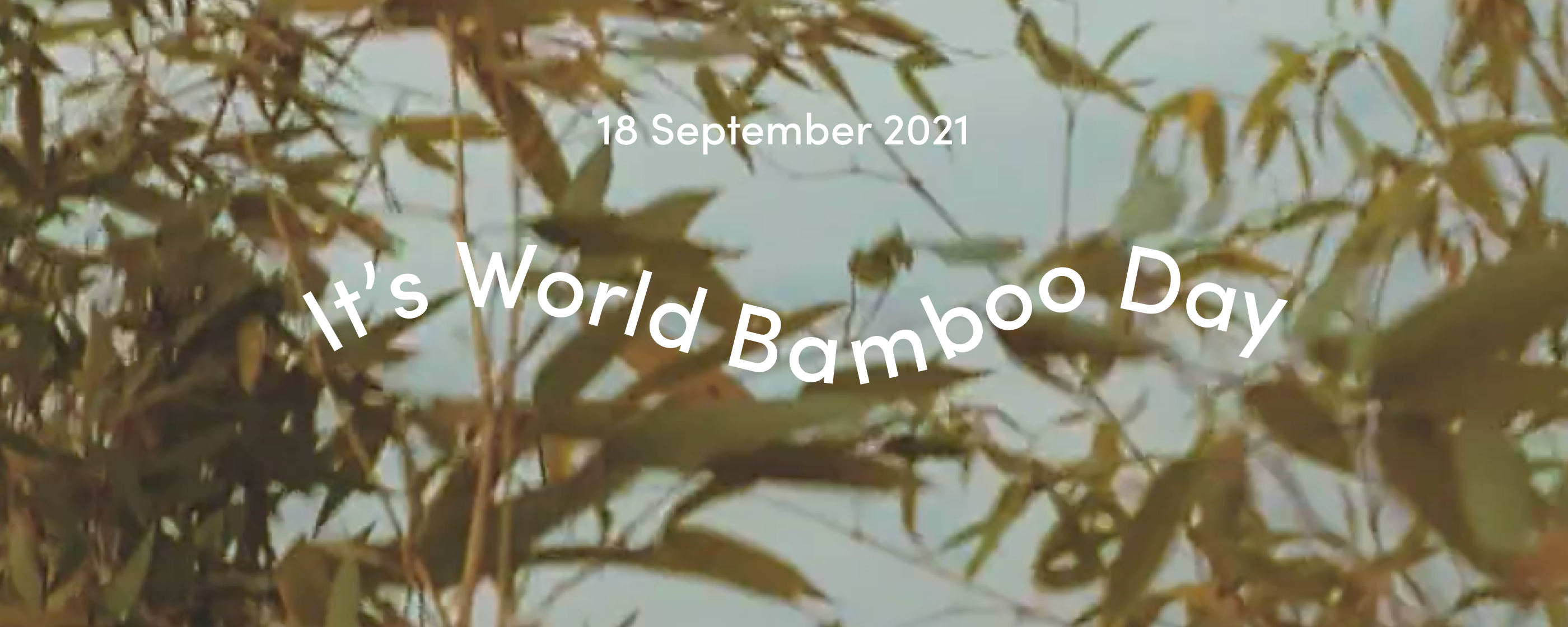
Leave a comment
All comments are moderated before being published.
This site is protected by hCaptcha and the hCaptcha Privacy Policy and Terms of Service apply.